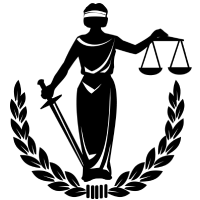In an era where technology shapes every aspect of our lives, the criminal justice system is no exception. Artificial Intelligence (AI) has emerged as both a boon and a challenge, revolutionizing investigations, cybersecurity, and forensic analysis. However, with these advancements come concerns about ethics, bias, and legal implications.
The Rise of AI in Crime Detection
Law enforcement agencies worldwide are leveraging AI to combat cyber crimes, enhance forensic investigations, and predict criminal activities. Some key applications include:
- Predictive Policing: AI algorithms analyze crime patterns to forecast potential criminal hotspots, helping authorities deploy resources effectively.
- Facial Recognition & Biometrics: AI-powered surveillance assists in identifying suspects and tracking individuals in real-time.
- Cyber Forensics: AI aids in decrypting hacked data, detecting fraud, and analyzing online threats with unprecedented speed.
The Ethical Dilemma
While AI brings efficiency, its unregulated use poses risks:
- Bias in AI Algorithms: AI systems trained on biased data may disproportionately target certain groups, raising concerns over discrimination.
- Privacy Invasion: The widespread use of facial recognition and digital tracking blurs the line between security and personal freedom.
- Legal Accountability: Who is responsible when AI makes an erroneous prediction or falsely implicates an individual?
Balancing Innovation with Regulation
To harness AI’s potential while ensuring justice and fairness, policymakers and legal professionals must:
- Establish transparent AI governance frameworks to mitigate bias.
- Strengthen data protection laws to safeguard individual privacy.
- Implement human oversight mechanisms to ensure AI decisions align with legal and ethical standards.
Conclusion
AI is reshaping criminal justice at an unprecedented pace. While it offers transformative solutions, its unchecked use could lead to unintended consequences. A balanced approach—embracing AI innovation while enforcing stringent legal safeguards—is essential for a fair and unbiased justice system.
